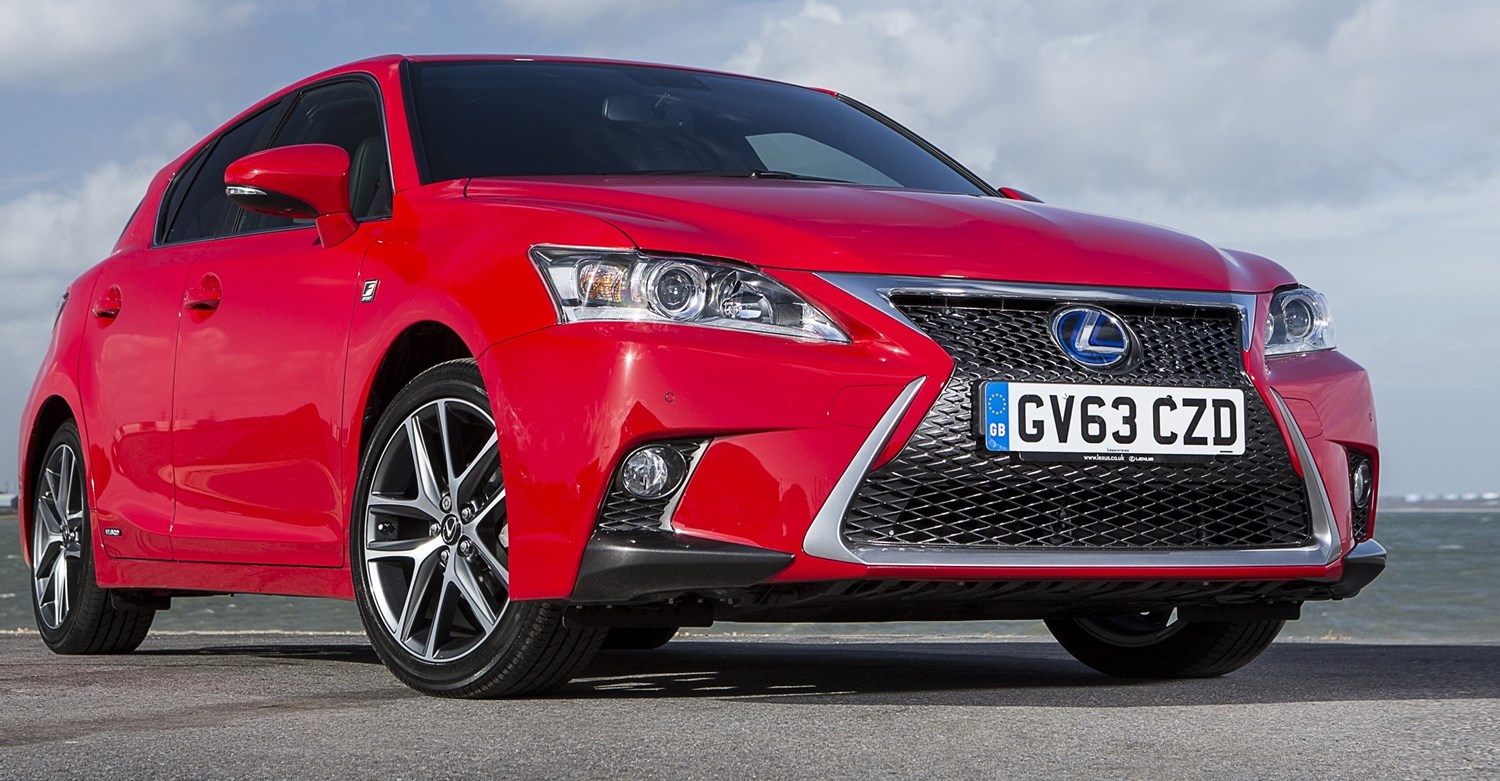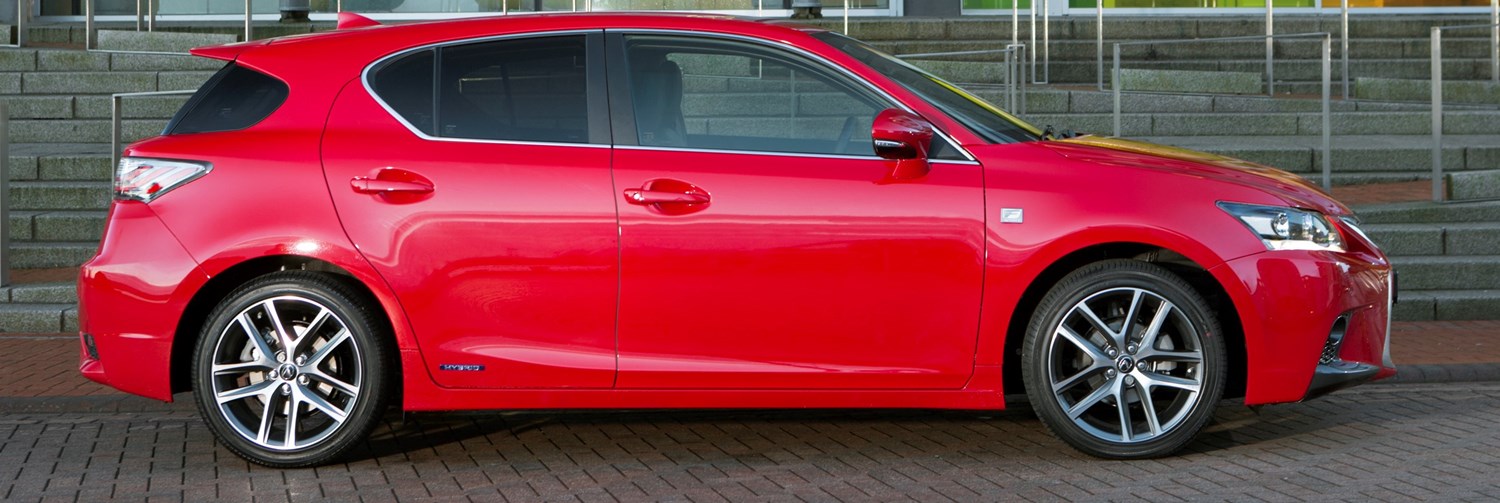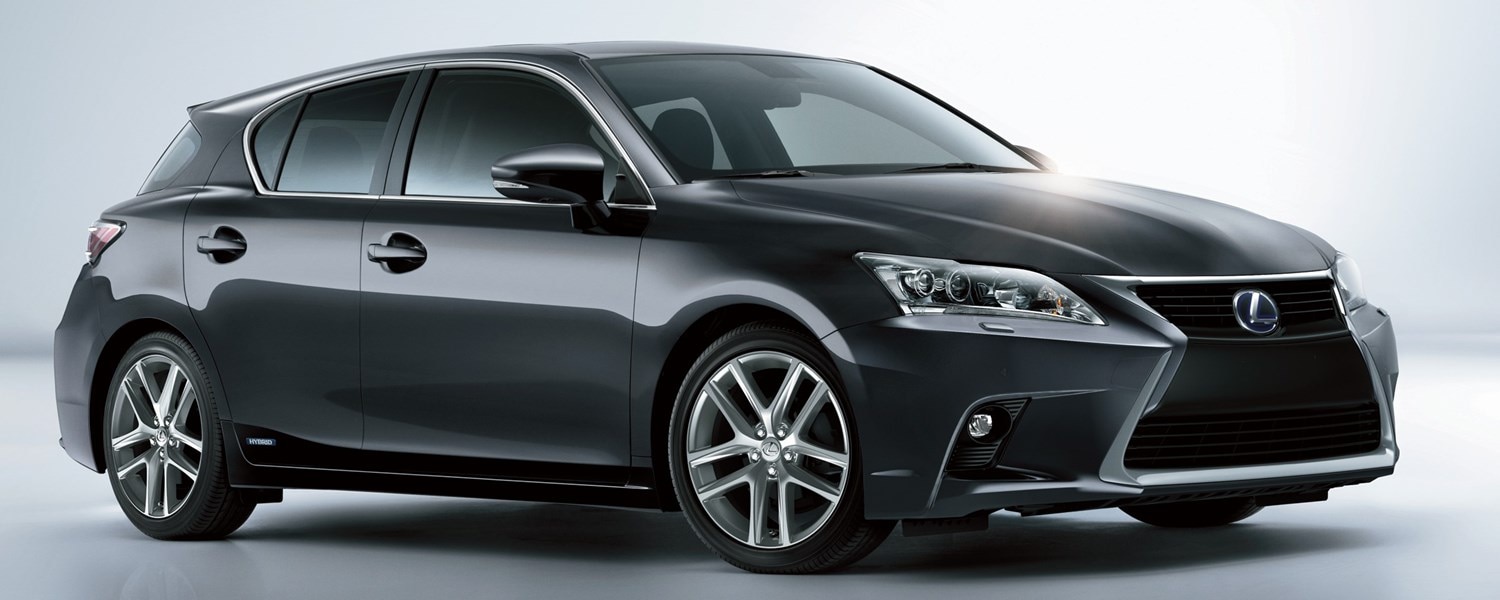Latest model
There has only been one generation of CT so far, although the car was facelifted in 2014. It's of an age now where cars are typically replaced, but its future is uncertain – whether there'll be a new CT or a different vehicle to replace it – at this point.
It shares a platform with the previous generation of Toyota Prius, and uses the same engine technology - termed “Lexus Hybrid Drive” in this application. This teams a 1.8-litre, four-cylinder petrol engine to a 60kW electric motor, to produce a total system output of 134hp when both engines are working together.The CT has a small electric-only range, but most of the time it will use and recover power as it needs to, operating the engines according to what's necessary at any given time.
The CT has a small electric-only range, but most of the time it will use and recover power as it needs to, operating the engines according to what's necessary at any given time.
Depending on the model you choose, the CT will have a fuel economy of 68-78mpg, and all models have emissions under 100g/km CO2. Performance is adequate, with 60mph coming up in just over ten seconds – quicker than similarly frugal, conventional diesel cars, but with greater harm done to the efficiency credentials in doing so.
Lexus changed the trim line-up for 2017, into a rather confusing specification tree rather than the normal hierarchy. It has three separate lines, with the entry-level S and higher grade Advance representing a value line, the Sport, Sport Plus and F Sport acting as a sporting line, and a more comfort-oriented line in the Executive, Luxury and Premier models.
The CT is a rival for other premium hatchback models, like the BMW 1 Series and Infiniti Q30, but adds the hybrid tech that's rarely offered on a car this size. The closest natural rivals are the Audi A3 e-tron and VW Golf GTE, but these are plug-in hybrids and markedly more expensive as a result.
Value for money
Given that the CT starts at under £23,000 – less than a new Prius – it might seem like decent value for money. It undercuts conventional rivals and significantly undercuts hybrid rivals.
However, the CT isn't a particularly quick vehicle, and the rivals beat it on both performance and on-paper fuel economy, never mind equipment. The entry level car may have dual zone climate control and a seven-inch touchscreen with DAB and Bluetooth, but there's no navigation, no cruise control, no reversing camera and only fabric seats. Thanks to the quirky way the CT's range is set up, it's difficult to find a complete car without heading to the options list, but the Sport and Executive models acquit themselves well for £24,355 and seem to be the best value in the range.
A good chunk of what you pay for is the hybrid system, but the CT also comes loaded with safety kit. It's officially rated at 78.5mpg and 87g/km CO2, although this only applies to the entry-level S model. Others, presumably due to the larger, 17-inch wheels, rate at 68.9mpg and 94g/km. A smaller, 16-inch option is available on some of these cars and are well worth thinking about if you're bothered by mpg. Thanks to new VED bands, these figures are no longer good enough to qualify for free road tax, but any car under 100g/km is still relatively cheap.
Depreciation might be a concern, as second-hand buyers are still concerned about battery life. Average mileage CTs tend not to hold value as well as you might hope, but low mileage examples will fare better. Insurance is inexpensive too, with most models sitting in band 15, and only the top specification cars hitting group 17 – firmly in the lower half of the insurance group system.
Looks and image
The Lexus brand has an unsual image, thanks in part to its own split personality. It might be most well-known in the UK for its luxury cars, with the giant LS400 as one of its earliest models, but it also has a strong motorsport history. Lexus has competed at the Nurburgring 24 Hours, has won the Japanese touring car championship (JGTC) and produced, rather incongruously, a £300,000 supercar called the LF-A.
However, its origins as Toyota's upmarket brand are well-known, and there will be more than a few people who'll comment that it's 'just a Toyota' or 'the Japanese Mercedes'.
The CT200h doesn't really hit either the luxury or the sporting aspects of Lexus. Essentially it's a more premium version of the Toyota Prius, but the links between the two cars aren't obvious to outside eyes, especially as Lexus has a great many hybrid models in its range now. This frees it of some of the eco-bore image.


